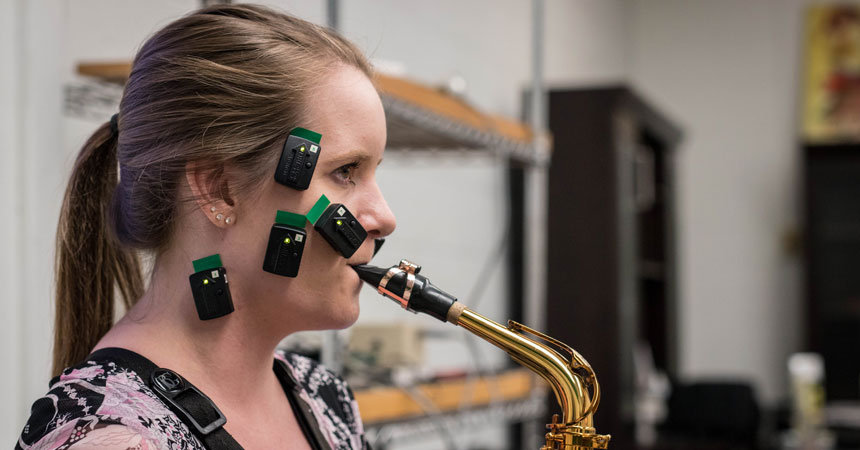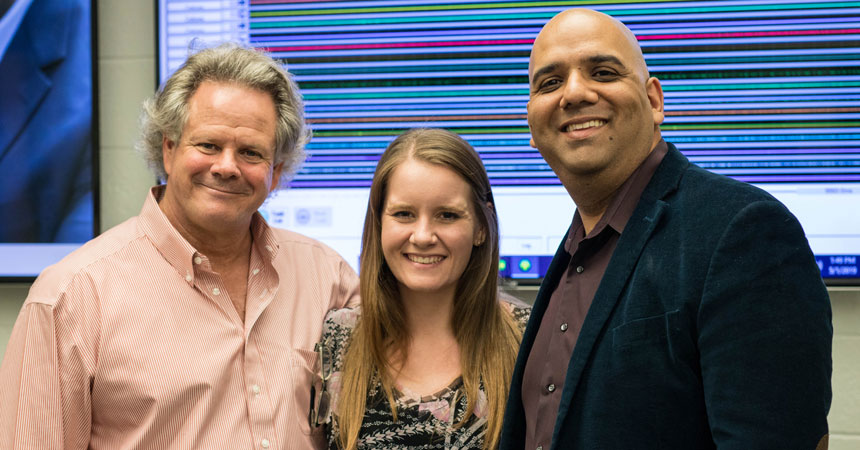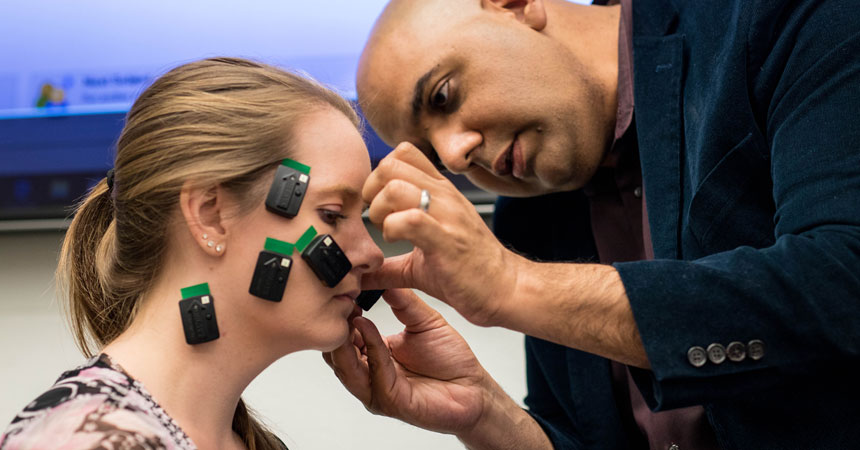Musician saves her career, with a little help from UNTHSC
By Jan Jarvis

As a musician, Sarah Dunbar never imagined she would one day be leaning over a cadaver studying facial muscles.
Yet, that is exactly where the University of North Texas College of Music graduate student found herself after years of struggling with severe pain caused by chronic temporomandibular joint disorder, or TMJD, and an unsuccessful bilateral jaw surgery.
Just how Dunbar landed in the UNT Health Science Center Anatomy Lab is a lesson in perseverance.
After realizing that some woodwind instruments elevated her pain more than others did, Dunbar began looking for answers as part of a research project developed in collaboration with the Texas Center for Performing Arts Health.
She came to the Anatomy Lab to see how specific muscles control formation of the woodwind instrument embouchures.
Without relief from the intense pain, Dunbar feared she would no longer be able to perform.
“Music is all that I’ve ever done,” she said. “It’s my career and I didn’t want to give it up.”
The study did more than lead to answers for her. It became the first known research in which facial electromyography measurements have been compared across woodwind instruments. The study was accepted for presentation at the Performing Arts Medicine Association Conference at UCLA Medical School.
At UNTHSC, Dunbar, who became her own research subject, received help measuring facial muscle locations from Cara Fisher, PhD, Assistant Professor and Anatomist in the Center for Anatomical Sciences.
Over several months, Dr. Fisher measured 26 donor faces and provided Dunbar with data that she could use in deciding where to place sensors – provided by Rita Patterson, PhD, Professor of Family Medicine, that would be used to measure facial muscle activation patterns.
Dunbar also received support using electromyography while playing woodwind instruments from Sajid Surve, DO, Associate Professor of Family Medicine at UNTHSC, and Kris Chesky, PhD, Professor in the College of Music at UNT, the Co-Directors of the Texas Center for Performing Arts Health.
Under their supervision, Dunbar attached the sensors to her facial and jaw muscles, and then played five woodwind instruments to record the electromyographic output of each muscle for each instrument.
The research has given Dunbar answers, and will help her continue to learn more effective ways to cope as a professional musician with severe TMJD.
Dunbar has brought drive and dedication to her work as a budding scholar, Dr. Surve said.
“She has managed to persevere through her medical struggles while continuing to perform at a world-class level as a musician,” he said. “Rather than succumb to her pain, Sarah chose to study her problem so that potential solutions could be found, not just for her but for all musicians suffering from similar conditions.”
For Dunbar, relief from pain comes after years of trying various treatments, including acupuncture, physical therapy and dental splints. She also had two bilateral surgeries on her temporomandibular joints that did nothing to relieve the pain.
The pain was so severe that after her first year of graduate school, she decided to quit and pursue another career path. However, after taking pre-med courses, she missed her life in music and decided to try again.
This time she was able to finish her master’s degree and go on to perform around the world, winning the 2018 American Protégé International Concerto Competition at Carnegie Hall among many others.
This summer, Dunbar will defend her dissertation in music, earning a Doctor of Musical Arts degree in multiple woodwind instrument performance and plans to pursue a career in performance and teaching.
She credits UNTHSC and The Texas Center for Performing Arts Health with helping her pursue this area of research, and Eric Nestler, DM, at the UNT College of Music for helping her return to the career she loves.
“I’ve wanted to be a musician since the six grade,” she said. “It’s what defines me.”








Social media